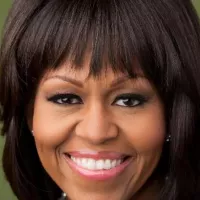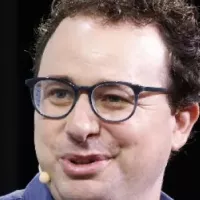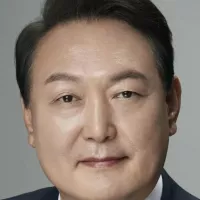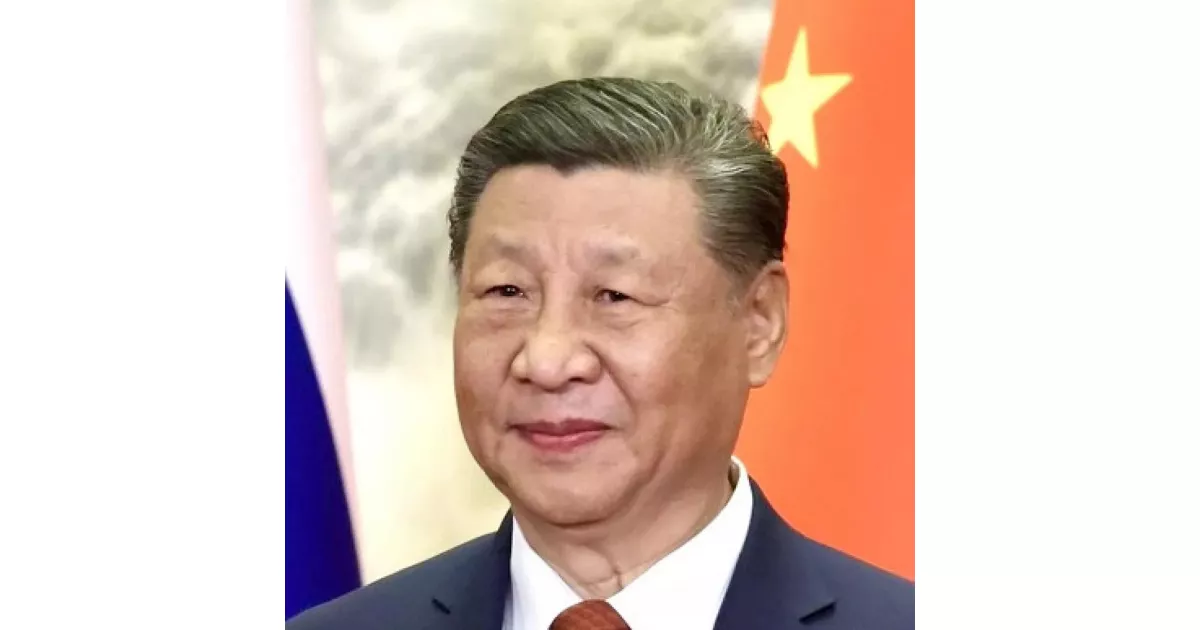How Xi Jinping built a successful career. Explore key moments that defined the journey.
Xi Jinping is the paramount leader of China, holding the positions of General Secretary of the Chinese Communist Party (CCP) and Chairman of the Central Military Commission (CMC) since 2012, and President of China since 2013. He is a member of the fifth generation of Chinese leadership and the first CCP General Secretary born after the establishment of the People's Republic of China (PRC).
1973: Assigned to Zhaojiahe Village
In 1973, Yanchuan County assigned Xi Jinping to Zhaojiahe Village in Jiajianping Commune to lead social education efforts before returning to Liangjiahe in July.
1974: Approved to Join the Chinese Communist Party
In early 1974, Xi Jinping's application to the Chinese Communist Party was approved after initial blockages due to his father's political persecution. Around that time, Xi was recommended to become the Party branch chairman of the Liangjiahe Brigade.
April 1979: Assigned to General Office of the State Council
After graduating in April 1979, Xi Jinping was assigned to the General Office of the State Council and the General Office of the CPC Central Military Commission, serving as a secretary to Geng Biao.
March 25, 1982: Appointed Deputy Party Secretary of Zhengding County
On March 25, 1982, Xi Jinping was appointed deputy party secretary of Zhengding County in Hebei. Together with Lü Yulan, Xi addressed excessive requisitions that burdened local farmers.
July 1983: Initiated Development Projects in Zhengding
In July 1983, as the secretary of the CCP Zhengding County Committee, Xi Jinping initiated development projects, including "Nine Articles of Zhengding talents", Changshan Park, Longxing Temple restoration, a tourism company, Rongguo Mansion, and Zhengding Table Tennis Base. He also secured 3.5 million yuan to build Rongguo Mansion, significantly boosting the county's tourism industry.
1983: Agricultural Structure Adjustment in Zhengding
In 1983, Zhengding adjusted its agricultural structure, leading to an increase in farmers' incomes.
September 1984: Highlighted Strategic Vision
In September 1984, during a briefing session, Xi Jinping's strategic vision and comprehensive understanding of Zhengding County's development were highlighted.
1984: Farmers' Income Increased
In 1984, farmers' incomes in Zhengding increased significantly, thoroughly solving the county's economic issues.
June 1985: Arrived in Xiamen as Vice-Mayor
In June 1985, Xi Jinping arrived in Xiamen as vice-mayor and drafted the first strategic plan for the city, the Xiamen Economic and Social Development Strategy for 1985–2000.
1985: Study Tour on Corn Processing and Transferred to Xiamen
In 1985, Xi Jinping participated in a study tour on corn processing in Iowa, US, and was transferred to Xiamen as vice mayor.
1985: Tour as a Hebei Provincial Official
In 1985, Xi Jinping toured the United States as a Hebei provincial official and later revisited Iowa in February 2012 and met with the family that previously hosted him.
September 1988: Appointed Secretary of Ningde
In September 1988, Xi Jinping was appointed secretary of Ningde.
May 1990: Assigned to Fuzhou City
In May 1990, the CCP Fujian Provincial Committee decided to assign Xi Jinping to Fuzhou City as the Municipal Committee Secretary.
1992: Interview with The Washington Post
In 1992, The Washington Post journalist Lena H. Sun interviewed Xi Jinping, who was then the CCP secretary of Fuzhou. He was described as at ease and confident.
1995: Elevated to Deputy Secretary of the Fujian Provincial Committee
In 1995, Xi Jinping was elevated to deputy secretary of the Fujian Provincial Committee of the Chinese Communist Party.
1997: Named Alternate Member of the CCP Central Committee
In 1997, Xi Jinping was named an alternate member of the 15th CCP Central Committee.
1999: Governor of Fujian
In 1999, Xi Jinping became the governor of Fujian province.
1999: Promoted to Vice Governor of Fujian
In 1999, Xi Jinping was promoted to the office of Vice Governor of Fujian.
2000: End Year for Development Strategy
In 1985, Xi Jinping drafted the development of the first strategic plan for Xiamen, the Xiamen Economic and Social Development Strategy for 1985–2000.
2002: Served as Governor of Fujian until 2002
From 1999 until 2002, Xi Jinping served as Governor of Fujian, during which he presented the notion of "Megalopolises".
2002: Governor and Party Secretary of Zhejiang
In 2002, Xi Jinping became governor and party secretary of Zhejiang.
2002: Took Political Positions in Zhejiang and Elected to the 16th Central Committee
In 2002, Xi Jinping left Fujian and took up leading political positions in neighbouring Zhejiang. In 2002, he was also elected a full member of the 16th Central Committee.
2002: 16th Party Congress
In 2002, the 16th Party Congress affirmed nine principles.
2004: Li Qiang became Xi's Chief of Staff
Between 2004 and 2007, Li Qiang acted as Xi Jinping's chief of staff through his position as secretary-general of the Zhejiang Party Committee, where they developed close mutual ties.
September 2006: Dismissal of Shanghai Party Secretary Chen Liangyu
In September 2006, Shanghai Party secretary Chen Liangyu was dismissed due to a social security fund scandal.
March 2007: Transferred to Shanghai as Party Secretary
In March 2007, Xi Jinping was transferred to Shanghai, where he was the party secretary for seven months.
October 2007: Joined Politburo Standing Committee
In October 2007, Xi Jinping joined the Politburo Standing Committee (PSC) of the CCP and became the first-ranking secretary of the Central Secretariat.
October 2007: Appointed to the PSC at the 17th Party Congress
In October 2007, Xi Jinping was appointed to the nine-man PSC at the 17th Party Congress.
2007: Li Qiang was Xi's Chief of Staff until 2007
Between 2004 and 2007, Li Qiang acted as Xi Jinping's chief of staff through his position as secretary-general of the Zhejiang Party Committee, where they developed close mutual ties.
March 2008: Elected Vice President of the PRC
In March 2008, at the 11th National People's Congress, Xi Jinping was elected as vice president of the PRC.
June 2008: First Foreign Trip as Vice President
From 17 to 25 June 2008, Xi Jinping made his first foreign trip as vice president to North Korea, Mongolia, Saudi Arabia, Qatar and Yemen.
2008: Designated as Hu Jintao's Successor
In 2008, Xi Jinping was designated as Hu Jintao's presumed successor as paramount leader and was appointed the eighth vice president and vice chairman of the CMC.
December 2009: Visit to Asian Countries
From 14 to 22 December 2009, Xi Jinping visited Japan, South Korea, Cambodia, and Myanmar.
2009: Assigned to Committee Chair for PRC's 60th Anniversary Celebrations
In 2009, after the Olympics, Xi Jinping was assigned the post of committee chair for the preparations of the 60th Anniversary Celebrations of the founding of the PRC.
2010: Visit to Chongqing and Praise of Bo Xilai
In 2010, during Xi Jinping's visit to Chongqing, he praised Bo Xilai's policies.
2011: Outlined a vision for China to become a soccer superpower
In 2011, Xi Jinping outlined a three-stage vision to transform China from a footballing minnow into a soccer superpower. The plan included qualifying for the World Cup, hosting the World Cup, and ultimately winning the World Cup.
February 2012: Visit to the United States, Ireland and Turkey
In February 2012, Xi Jinping visited the United States, Ireland and Turkey, including a meeting with then U.S. president Barack Obama at the White House and vice president Joe Biden.
September 2012: Disappearance from Official Media and Reappearance
Beginning on 1 September 2012, Xi Jinping disappeared from official media coverage and cancelled meetings with foreign officials for several weeks, causing rumors, before reappearing on 15 September.
November 2012: Elected General Secretary of the CCP and Chairman of the CMC
On 15 November 2012, Xi Jinping was elected to the posts of general secretary of the CCP and chairman of the CMC by the 18th Central Committee of the CCP.
December 2012: Visit to Guangdong and Call for Economic Reform
In December 2012, Xi Jinping visited Guangdong in his first trip outside Beijing since taking the Party leadership, calling for further economic reform and a strengthened military.
2012: Increase of private sector firms market value
From 2012 to 2022, the share of the market value of private sector firms in China's top listed companies increased from 10% to over 40%.
2012: China's Economy
In 2012, China's economy was $8.5 trillion. When Xi took office in 2012, 54% of people in China were living on less than $6.85 per day.
2012: Appointed General Secretary of the CCP and Chairman of the CMC
In 2012, Xi Jinping became the general secretary of the Chinese Communist Party (CCP) and chairman of the Central Military Commission (CMC), becoming the paramount leader of China.
2012: Overhaul of the People's Liberation Army
Since taking power in 2012, Xi Jinping has undertaken an overhaul of the People's Liberation Army (PLA), including political reform and modernization.
March 2013: Elected President of China
On 14 March 2013, Xi Jinping was elected president in a confirmation vote by the 12th National People's Congress in Beijing, replacing Hu Jintao. On 17 March, he met with the chief executive of Hong Kong, CY Leung. Within hours of his election, Xi discussed cyber security and North Korea with U.S. President Barack Obama over the phone.
November 2013: Third Plenum of the 18th Central Committee
In November 2013, at the conclusion of the Third Plenum of the 18th Central Committee, the Communist Party delivered a far-reaching reform agenda. Xi Jinping signaled consolidating control of the internal security organization and formed a new National Security Commission with himself at its helm.
2013: Creation of Central Leading Groups
Beginning in 2013, the CCP under Xi Jinping established a series of Central Leading Groups to streamline policy-making and bypass existing institutions.
2013: Launch of the Shanghai Free-Trade Zone
In 2013, Xi Jinping launched the Shanghai Free-Trade Zone, which was seen as part of the economic reforms.
2013: Rehabilitation of ancient Chinese philosophical figures
In 2013, Xi Jinping oversaw the rehabilitation of ancient Chinese philosophical figures like Han Fei into the mainstream of Chinese thought.
2013: Served as President of China
In 2013, Xi Jinping started serving as the seventh president of China.
February 2014: Creation of Central Leading Group for Cybersecurity and Informatization
In February 2014, the Central Leading Group for Cybersecurity and Informatization was established with Xi Jinping as its leader.
September 2014: Publication of "The Governance of China" Volume One
In September 2014, the Foreign Languages Press published the first volume of Xi Jinping's "The Governance of China" book series for an international audience.
October 2014: Speech at the Forum on Literature and Art
On October 15, 2014, Xi Jinping delivered a speech at the Forum on Literature and Art, emulating the Yan'an Forum and emphasizing political criteria for judging works of art.
2014: Growth of the PLA Navy
Between 2014 and 2018, the PLA Navy saw rapid growth, with China adding more warships, submarines, support ships, and major amphibious vessels than the entire number of ships under the United Kingdom navy.
2014: Introduction of the holistic security concept
In 2014, Xi Jinping introduced the holistic security concept, encompassing all aspects of the party and the country's work.
2014: Integration of Hong Kong to Mainland China
In 2014, Xi Jinping supported a greater integration of Hong Kong into mainland China through projects like the Hong Kong–Zhuhai–Macau Bridge and the Greater Bay Area project. A white paper by the State Council in 2014 outlined that the China's central government has "comprehensive jurisdiction" over Hong Kong.
2014: Establishment of Central Leading Group for Military Reform
In 2014, the Central Leading Group for Military Reform was founded, with Xi Jinping overseeing comprehensive military reforms.
2014: Legal reforms announced at Fourth Plenum
In the fall of 2014, legal reforms were announced at the Fourth Plenum, calling for "Chinese socialistic rule of law" to reform the legal system.
November 2015: Meeting with Taiwanese President Ma Ying-jeou
In November 2015, Xi Jinping met with Taiwanese President Ma Ying-jeou, marking the first meeting between leaders from both sides of the Taiwan Strait since 1950.
2015: Announcement of troop reduction in the PLA
In 2015, Xi Jinping announced a reduction of 300,000 troops from the PLA, bringing its size to 2 million troops as a gesture of peace and modernization.
2015: Approved China's 50-point plan for soccer
In 2015, Xi Jinping approved China's 50-point plan for soccer, which included incorporating soccer into the national school curriculum and establishing 50,000 soccer schools nationwide by 2025.
2015: Launch of battle against poverty
In 2015, Xi Jinping launched the battle against poverty, which concluded by 2021. He declared a "complete victory" over extreme poverty.
2015: National security and counterterrorism law
In 2015, under Xi Jinping, China passed a national security and a counterterrorism law as part of its focus on national security.
January 2016: Two-child policy replaces one-child policy
In January 2016, China's two-child policy replaced the one-child policy, marking a shift in the nation's population control measures.
April 2016: Xi named commander-in-chief of Joint Operations Command Center
On April 21, 2016, Xi Jinping was named commander-in-chief of the country's new Joint Operations Command Center of the PLA.
2016: Cybersecurity law and law restricting foreign NGOs
In 2016, China passed a cybersecurity law and a law restricting foreign NGOs under Xi Jinping's administration, focusing on national security.
2016: Received Title of Leadership Core
In 2016, Xi Jinping officially received the title of leadership core from the CCP.
2016: Reduction of theater commands in the PLA
In 2016, Xi Jinping reduced the number of theater commands of the PLA from seven to five, streamlining military structure.
September 2017: Decision to include "Xi Jinping Thought" in the Party Constitution
In September 2017, the CCP Central Committee decided that Xi Jinping's political philosophies would become part of the Party Constitution.
October 2017: Mention of "Thought on Socialism with Chinese Characteristics"
In October 2017, Xi Jinping first mentioned the "Thought on Socialism with Chinese Characteristics for a New Era" in his opening day speech at the 19th Party Congress.
November 2017: Publication of "The Governance of China" Volume Two
In November 2017, the Foreign Languages Press published the second volume of Xi Jinping's "The Governance of China" book series.
2017: Carrie Lam's Election as Chief Executive
In 2017, Carrie Lam was elected as the chief executive of Hong Kong, reportedly with the endorsement of the CCP Politburo.
2017: Establishment of first overseas naval base in Djibouti
In 2017, China established the navy's first overseas base in Djibouti, expanding its global presence.
2017: National intelligence law
In 2017, China passed a national intelligence law under Xi Jinping, as part of the government's focus on national security.
2017: Xi's Visit to Hong Kong
In 2017, Xi Jinping visited Hong Kong as president for the 20th anniversary of the handover.
2017: Announcement of Xiong'an new area
In 2017, Xiong'an, a new area near Beijing, was announced, planned to become a major metropolis.
2017: Establishment of Financial Stability and Development Committee
In 2017, the Financial Stability and Development Committee, a State Council body, was established to manage the financial system.
January 2018: Launched Campaign to Crack Down on Organized Crime and Eliminate Evil
In January 2018, Xi Jinping launched a three-year Special Campaign to Crack Down on Organized Crime and Eliminate Evil that lasted until 2020.
March 2018: Inclusion of "Xi Jinping Thought" in the state constitution
In March 2018, the National People's Congress changed the state constitution to include Xi Jinping Thought.
2018: Growth of the PLA Navy
Between 2014 and 2018, the PLA Navy saw rapid growth, with China adding more warships, submarines, support ships, and major amphibious vessels than the entire number of ships under the United Kingdom navy.
2018: China Cyberspace Governance Conference and Media Visit
In 2018, Xi Jinping chaired the 2018 China Cyberspace Governance Conference and during a visit to Chinese state media, Xi stated that "party and government-owned media must hold the family name of the party".
2018: Creation of performance-review system
In 2018, Xi Jinping created a performance-review system to evaluate officials on various measures, including loyalty.
2018: Promise to continue reforms
In 2018, Xi Jinping promised to continue reforms but warned that nobody "can dictate to the Chinese people."
2018: Overhaul of CCP and state bodies
In 2018, Xi's administration implemented a significant overhaul of the Chinese Communist Party (CCP) and state bodies, restructuring various institutions.
2018: Ending of presidential term limits
In 2018, presidential two-term limits were ended, leading political observers to call Xi Jinping the most powerful Chinese leader since Mao Zedong. Xi departed from collective leadership practices, centralised power, and created working groups with himself at the head.
2018: Deepening the reform of Party and state institutions
In 2018, reforms to Party and state institutions were deepened, with several central leading groups being upgraded to commissions.
2018: Removal of Term Limits for Presidency
In 2018, term limits for the presidency were removed during Xi Jinping's tenure.
2018: Central Leading Group upgraded to a commission
In 2018, the Central Leading Group for Comprehensively Deepening Reforms, a policy coordination body led by Xi, was upgraded to a commission.
2018: Constitutional amendments passed
In 2018, the National People's Congress (NPC) passed constitutional amendments, including the removal of term limits for the president and vice president, and the creation of a National Supervisory Commission. Xi Jinping was reappointed as president without term limits.
2018: PAP placed under sole control of CMC
In 2018, the People's Armed Police (PAP) was placed under the sole control of the Central Military Commission (CMC).
2018: Revival of calls for self-reliance
Since the outbreak of the trade war in 2018, Xi Jinping has revived calls for "self-reliance," especially on technology.
2019: "Xuexi Qiangguo" app becomes popular
In 2019, "Xuexi Qiangguo", an app for teaching Xi Jinping Thought, became the most popular smartphone app in China.
July 2020: CCP Announced Campaign to Educate and Rectify Political and Legal Teams
In July 2020, after the special campaign exposed problems in the legal system, the CCP announced a campaign to educate and rectify the political and legal teams.
September 2020: Xi announces China's new climate target
In September 2020, Xi Jinping announced that China would strengthen its 2030 climate target, aiming to peak emissions before 2030 and achieve carbon neutrality before 2060. Xi linked this decision to the COVID-19 pandemic and nature destruction.
October 2020: "The East is rising and the West is declining"
In October 2020, Xi Jinping stated that "the East is rising and the West is declining", citing the COVID-19 response as an example of the Western world's declining power.
2020: Appointment of Chen Xiaojiang
In 2020, Chen Xiaojiang was appointed as head of the National Ethnic Affairs Commission, the first Han Chinese head of the body since 1954.
2020: Formulation of "three red lines" policy
In 2020, Xi Jinping's government formulated the "three red lines" policy that aimed to deleverage the heavily indebted property sector.
2020: CCP leadership mandated for all elections
In 2020, all elections at all levels of the people's congress system and NPC were mandated to adhere to the leadership of the CCP.
2020: Record domestic spending on R&D
In 2020, domestic spending on R&D in China reached a record $564 billion.
May 2021: Introduction of three-child policy
In May 2021, the two-child policy was replaced with a three-child policy in China, continuing the evolution of family planning regulations.
July 2021: Removal of family size limits and penalties
In July 2021, China removed all family size limits and penalties for exceeding them, further relaxing previous restrictions on family planning.
September 2021: Xi announces end to financing coal-fired power projects abroad
In September 2021, Xi Jinping announced that China would cease building coal-fired power projects abroad. This decision was considered potentially pivotal in reducing global emissions.
November 2021: CCP adopts historical resolution
In November 2021, the CCP adopted a historical resolution, the third of its kind, evaluating the party's history. The CCP also promoted the terms Two Establishes and Two Upholds, calling for unity around Xi Jinping's core status within the party.
2021: Speech on the 100th anniversary of the CCP
During the 100th anniversary of the CCP in 2021, Xi Jinping emphasized the party's leadership and its role in China's national rejuvenation.
2021: Data security law
In 2021, China passed a data security law under Xi Jinping, as part of the government's focus on national security.
2021: China's nominal GDP per capita surpasses world average
In 2021, China's nominal GDP per capita surpassed the world average. In 2021, 17% of people in China were living on less than $6.85 per day.
2021: Quoting Yan'an Talks at the National Congress
In 2021, Xi Jinping quoted the Yan'an Talks during the opening ceremony of the 11th National Congress of the China Federation of Literary and Art Circles and the 10th National Congress of the Chinese Writers Association, reaffirming the importance of political criteria in art.
2021: Unveiling the Global Development Initiative (GDI)
In 2021, Xi Jinping unveiled the Global Development Initiative (GDI), aiming to increase China's influence in the international order.
2021: Promotion of "common prosperity"
Since 2021, Xi Jinping has promoted the term "common prosperity," defining it as an "essential requirement of socialism" and using it to justify crackdowns on the tech and tutoring industries.
June 2022: Appointment of Pan Yue
On June 24, 2022, Pan Yue, another Han Chinese, became the head of the National Ethnic Affairs Commission, with him reportedly holding assimilationist policies toward ethnic minorities.
July 2022: Xi's Visit to Xinjiang
During a four-day visit to Xinjiang in July 2022, Xi Jinping urged local officials to always listen to the people's voices and to do more in preservation of ethnic minority culture. He also inspected the Xinjiang Production and Construction Corps.
October 2022: Secured Third Term as CCP General Secretary
In October 2022, Xi Jinping secured a third term as CCP General Secretary.
October 2022: 20th National Congress of the Chinese Communist Party
In October 2022, the 20th National Congress of the Chinese Communist Party resulted in amendments to the CCP constitution and the re-election of Xi Jinping as general secretary of the CCP and chairman of the CMC for a third term, strengthening his power.
2022: Chinese IPOs taking place in Shanghai or Shenzhen
As of 2022, most Chinese IPOs are taking place either in Shanghai or Shenzhen, and funding is increasingly directed to IPOs of companies that works in sectors it deems as strategic.
2022: Increase of private sector firms market value
From 2012 to 2022, the share of the market value of private sector firms in China's top listed companies increased from 10% to over 40%.
2022: Unveiling the Global Security Initiative (GSI)
In 2022, Xi Jinping unveiled the Global Security Initiative (GSI), aiming to increase China's influence in the international order.
2022: Xi's Visit to Hong Kong and Swearing-in of John Lee
In 2022, Xi Jinping visited Hong Kong for the 25th anniversary of the handover and swore in John Lee as chief executive, who was backed by the Chinese government.
March 2023: Xi re-elected as PRC president
In March 2023, Xi Jinping was re-elected as the PRC president and chairman of the PRC Central Military Commission during the 14th National People's Congress, while Li Qiang succeeded Li Keqiang as the Premier.
March 2023: Re-elected State President for Third Term
In March 2023, Xi Jinping was re-elected state president for a third term.
August 2023: Xi's Speech on Tourism in Xinjiang
During a visit to Xinjiang in August 2023, Xi Jinping said in a speech that the region was "no longer a remote area" and should open up more for tourism to attract domestic and foreign visitors.
2023: Officials Prosecuted in Anti-Corruption Campaign
As of 2023, approximately 2.3 million government officials have been prosecuted as part of Xi Jinping's anti-corruption campaign.
2023: Growth of China's economy
By 2023, China's economy has grown to $17.8 trillion. Also, the growth slowed to 5.2% in 2023.
2023: Disestablishment of Financial Stability and Development Committee
During the 2023 Party and state reforms, the Financial Stability and Development Committee was disestablished by the newly established Central Financial Commission.
2023: Put forward new productive forces
In 2023, Xi Jinping put forward new productive forces, this refers to a new form of productive forces derived from continuous sci-tech breakthroughs and innovation that drive strategic emerging and future industries in a more intelligent information era.
2023: Unveiling the Global Civilisation Initiative (GCI)
In 2023, Xi Jinping unveiled the Global Civilisation Initiative (GCI), aiming to increase China's influence in the international order.
2023: Further reforms to CCP and state bureaucracy
In 2023, further reforms were implemented to the CCP and state bureaucracy, including strengthening Party control over finance and technology.
2023: Estimate of China's nuclear arsenal
In 2023, the Federation of American Scientists (FAS) estimated China's total number of nuclear arsenals to be 410.
2024: Strengthening of CCP's role
In 2024, the CCP's role was further strengthened, with State Council regulations amended to include a clause about following CCP ideology and policies.
2025: Plan to set up 50,000 soccer schools in the country.
In 2015, Xi Jinping approved China's 50-point plan for soccer, which included establishing 50,000 soccer schools nationwide by 2025.
2025: Projected military budget
Under Xi Jinping, China's official military budget is projected to reach a record $246 billion in 2025.
2025: Target year for Made in China 2025 plan
Xi Jinping's administration promoted the Made in China 2025 plan that aimed to make China self-reliant in key technologies by 2025, although publicly China de-emphasised this plan due to the outbreak of a China–United States trade war.
2030: Projected growth of China's nuclear arsenal
The US Department of Defense estimates that China's nuclear arsenal could reach 1,000 by 2030, marking a significant expansion.
2035: Estimated end for relocation aspect of Xiong'an
The relocation aspect of the development of Xiong'an, a new area near Beijing, is estimated to last until 2035.
2049: Goal to lead the world
During the 20th CCP National Congress, Xi Jinping stated his goal to ensure China "leads the world in terms of composite national strength and international influence" by 2049.
2050: Target year to develop Xiong'an into a modern socialist city
It is planned that Xiong'an, a new area near Beijing, will be developed into a "modern socialist city" by 2050.
Mentioned in this timeline

Vladimir Vladimirovich Putin is a Russian politician and former intelligence...

Michelle Obama an American attorney and author served as the...

Barack Obama the th U S President - was the...

Joe Biden is an American politician who served as the...

The stock market is where buyers and sellers trade stocks...
Qatar is a country located on the Qatar Peninsula in...
Trending

35 minutes ago Selena Gomez's Spiced-Plum Manicure and TikTok Clone Theory Spark Buzz

36 minutes ago Kit Harington and Sophie Turner Gag After On-Screen Kiss in New Movie

36 minutes ago Trump administration updates, Iran nuclear efforts, and White House controversies unfold.

36 minutes ago Dario Amodei Highlights India's Central Role in Shaping AI's Future at AI Summit.

2 hours ago Yoon Suk Yeol, South Korean ex-president, receives life sentence for insurrection and martial law.

4 hours ago Maya Hawke and Christian Lee Hutson celebrated wedding with Stranger Things cast present.
Popular

Jesse Jackson is an American civil rights activist politician and...
Randall Adam Fine is an American politician a Republican who...

Pam Bondi is an American attorney lobbyist and politician currently...

Barack Obama the th U S President - was the...

Martin Luther King Jr was a pivotal leader in the...

Ken Paxton is an American politician and lawyer serving as...

